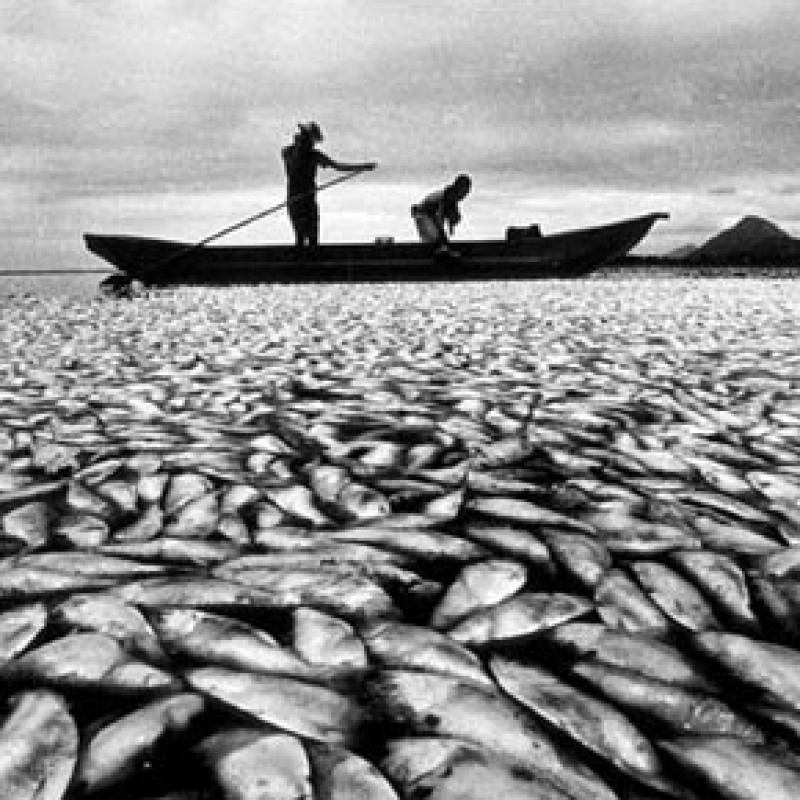'God wants you to act on what's in front of you': enforcing conservation law in the Coral Triangle



Robert Chan with his team at Palawan NGO Network Incorporated, Puerto Princesa, Palawan, Philippines.
Thom Pierce for the Guardian
C onfiscated bottles of cyanide, fishing dynamite and more than 600 chainsaws decorate the office of Robert Chan , leader of arguably the world’s most effective direct-action eco-vigilante organisation.
The Palawan NGO Network Incorporated risk their lives to protect reefs and coastal forests in the Coral Triangle, a global hotspot for marine biodiversity and violent environmental crime.
Operating in the biggest province in the Philippines , the small group of 16 activists enforce conservation laws that usually go ignored by local police and coastguards.
Chan – a long-haired, music-loving bundle of energy, ideas and enthusiasm – initiated this campaign in 2009. “We had to do enforcement work because the government wasn’t doing it,” he said. “We can’t stand watching our resources being destroyed in front of our faces.”

Honda Bay in Puerto Princesa, where the Palawan NGO Network Incorporated are based.
Thom Pierce/Guardian / Global Witness / UN Environment
Illegal fishing vessels have been towed into the yard, which is ringed by a fence of rusting chainsaws, some of which are also stacked into a 10-metre high tower. There are bundles too of barbed wire, pulled from the boundaries of unlicensed development projects linked to powerful businessmen and politicians.
Inside, the walls and cabinets are filled with homemade guns seized from poachers, and explosives and poisons illicitly used to flush fish from the corals so they can be sold to home aquarium owners in China.
On the sofas, Chan is singing karaoke and drinking beer with his colleagues at a late-night goodbye party for a departing member of the team.
It is an important moment of light relief for activists engaged in an extraordinarily dangerous job. Unlike many of their adversaries, they do not use guns. Instead they rely on stealth, support from local communities and a little-known citizen’s arrest law to intercept and disarm those involved in forest crime.
“We have had eight dead and dozens injured and countless threats,” says Chan, who is at such high risk that he no longer dares to leave the group’s headquarters.
He has been repeatedly warned to stop his activities, which also include legal challenges and media campaigns. In 2015, the Palawan governor, Jose Chaves Alvarez, was so incensed by Chan’s opposition to a mining project that he publicly fumed : “What does he want, war? If he wants, we can square off, the two of us.”
Yet Chan – an environmental lawyer – continues to coordinate monitoring work and challenge tourism, plantation and mining projects that are likely to lead to forest clearance or pollution run-off into the turquoise waters around the island, which are increasingly suffering from coral bleaching and wildlife loss.

Robert Chan
Thom Pierce/Guardian / Global Witness / UN Environment
Donors are reluctant to provide funds for such dangerous interventions, but Chan calls for laws to strengthen the powers of communities to take direct action and confiscate and compound vehicles and tools used illegally. If left to the government or international organisations, he believes nothing gets done.
“They end up trying to stop a logger or dynamite fisherman by holding a heavily funded environmental education workshop or seminar, while programmes like ours beg for gas money and are often put down, ignored or downplayed,” he says. “We need open-minded policymakers and funding agencies that will support third world solutions to third world problems, and not first world remedies that are intellectually stimulating and really look good on paper but have no real effect.”
Tags
Who is online
38 visitors

The objects stacked on the left of the photo at the top of the article are confiscated chainsaws.
Since the last 'great war' the World looked to Washington for guidance. Now, the guidance is over and the World...…………...
As to this problem in The Philippines, Washington does not care. People like Chan will have to carry this fight alone.
Kudos to Chan...
I'm hopeful that he and his group can make changes, but they are up against big money and people that have no qualms about killing.
Yes.
Things will have to get much worse before enough people wake up.
I wonder how much blood is on his hands. Don’t get me wrong I like vigilantes but we are only hearing one side of the story here.
You're interested in hearing the story from the villains' side?
I know that both-sides-ism is rampant, but that's really going too far...